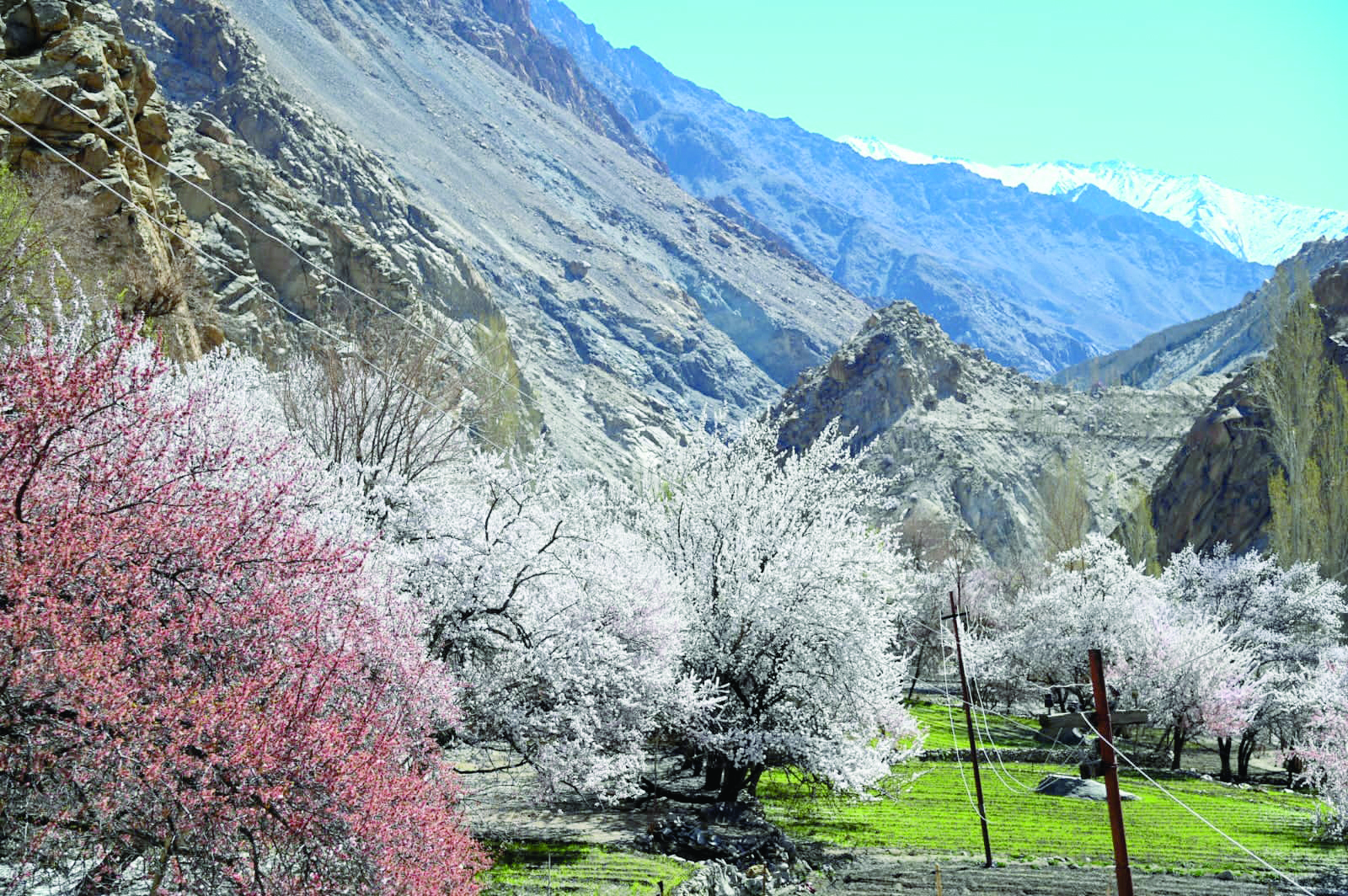With the arrival of spring in the cold desert of Ladakh, the blossom of apricot trees is mesmerizing the tourists and travellers in the region these days.
At present, the apricot trees in both Kargil and Leh districts of Ladakh are in full bloom and tourists from different parts of the country and abroad are thronging apricot orchards here.
Assistant Director Tourism Kargil, Syed Toha the festival attracts hundreds of tourists to UT Ladakh and helps in promotion of apricot and boosting the local economy.
“It is celebrated every year and this year it is being celebrated from April 08 to 18 and a series of events would be held at different locations of Kargil. It is an opportunity for tourists to explore Ladakh, its landscapes, rich culture and beauty,” he said.
He said the department is getting a good number of enquiries from tourists about the destination in the region to visit, adding that more events will be held in coming months to make Kargil a potential tourist destination of Ladakh.
Javid Ahmad, a resident of Kargil said apricot flower bloom signifies the onset of summer after the long and harsh winter of Ladakh, the second-coldest inhabited location in the world. He said during this period settlements in the western belt of Ladakh are covered with white sheets of flowers.
“Over the years there has been a change in the celebration of the festival. This festival invites people from different cultures and regions and it is a pride for us,” he said.
The apricot festival locally means Chuli Mendok. Apricot is popularly known as Chuli in Ladakh. The fruit is an integral part of Ladakh’s culture, heritage and economy.
In order to further promote tourism and apricot, the Tourism Department Kargil is organizing an apricot blossom festival from April 08 to 18 at various locations during which visitors witness mesmerizing blossoms of apricot trees, its products and cultural programs.
The 10-day-long festival commenced at Garkone village in Kargil on April 08 followed by another grand celebration in Darchik on 09 April and the festival continues in the district.
Officials of the Tourism Department hoped to make Kargil an all-weather tourist destination in the coming years. The festival is a visual treat for travellers.
The apricots known for their sweet taste are first harvested, dried and then transported outside the region and are also sold in Kargil’s main market known as Lal Chowk.
Muhammad Ali, an apricot grower hailing from Gargardo village of Kargil is associated with apricot production and its business for a long time.
“Apricots have the potential to go to international markets. Apricots should be exported to outside markets. The more it is exported the more it will be beneficial for farmers,” he said.
Apricots are the main fruit trees of Kargil, widely grown and highly perishable within the short summer season. Therefore, fresh fruits need transportation soon after harvesting.
The past two years were historic for Ladakh as fresh apricots from Kargil district were sent to the international market in Dubai for the first time in 35 years.
Apricot is the first and lone produce in Ladakh. As per farmers, there are some 40 varieties of apricots in Ladakh region found in Kargil and Leh.
Harvesting is done by collecting apricots from trees manually in August. However, due to the introduction of harvesting, net picking of fruits has been made easy but it is laborious.
Kargil district has 129 villages out of which only 64 villages are under fruit cultivation. Out of the 64, there are 10-15 villages producing a sizable quantity of apricot.
The places which are rich in apricot production in Kargil include Gargardo, Darchiks, Chulichan, Batalik, Garkone, Shilikchay, Hardass, Karkitcho, Chanigund.
In December last year, the Government of India granted the Geographical Indications (GI) tag for Raktsey Karpo Apricot variety of Ladakh.
An official of the Horticulture Department in Kargil said apricot has been identified as the primary crop for Kargil under its One District One Crop Program adding that nearly 62 percent of India’s apricots are produced in Ladakh.
In India, for decades, people have consumed it. A part of local culture, apricots are served as desserts, particularly during traditional festivals and functions. Many people in Ladakh send apricots as gifts to friends and family members in and outside the region.

